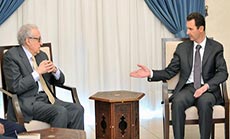FT: Settler Policy Imperils "Israel’s" Foundations

Local Editor
Under the title, "Settler policy imperils "Israel's" foundations," the Financial Times famous magazine reported Friday that "Israel's" security is threatened by allies' anger.
 In this context, Philip Stephens mentioned that ""Israel" and Australia are involved in a spat about the death of a young man held in an "Israeli" prison. It is a cloak-and-dagger tale."
In this context, Philip Stephens mentioned that ""Israel" and Australia are involved in a spat about the death of a young man held in an "Israeli" prison. It is a cloak-and-dagger tale."
"Media reports suggest the former Mossad employee Ben Zygier, who is said to have hanged himself in 2010 after being detained in conditions of great secrecy, had threatened to reveal details of the way "Israeli" intelligence agents carry other nations' passports on overseas operations," he said.
In parallel, the analyst stated: "The abuse of foreign documents is a cause of some anger among "Israel's" allies. The British and Australian governments lodged protests when their passports were used by Mossad operatives who travelled to Dubai three years ago to kill a leading figure in the Palestinian Hamas movement."
"The squall will probably pass, not least because there seem to be sensitive questions about how much was known by Australian spooks. Behind this story, however, lies a more important one," the report clarified.
In a wider vision, the analysis confirmed that "Benjamin Netanyahu's government has been losing "Israel" the support of its best friends. This is something that should worry anyone concerned with "Israel's" long-term security."
On this level, the famous magazine highlights some aspects of "Israeli's" crisis with its allies: "When the UN general assembly debated Palestinian statehood towards the end of last year, the starting point among politicians in Canberra was an assumption that Australia would do what it has always done. It would "vote with Israel" by opposing Palestinian recognition. Julia Gillard, the prime minister, proposed just such a course when the issue cropped up in the Australian cabinet.
She was persuaded otherwise. A majority of her ministers did not want to lend support to Netanyahu. Ignoring pressure from Barack Obama's US administration, Australia abstained when it came to the UN vote.."
According to the report, "By the account of one of those at the cabinet discussion, the decision marked a big and, for "Israel", dangerous shift."
An entity once seen in Australia as a beleaguered friend was now viewed as its own worst enemy.
"As this minister explained it, "Israel" was once defined in Australian minds by the idealism of its kibbutzim. Now its public image was shaped by a bellicose Netanyahu and colonization of Palestinian land by "Israeli" settlers."
"Israel" is losing legitimacy among allies around the world. Netanyahu bears the responsibility.
Meanwhile, Stephens mentioned that "Australia was far from alone at the UN. Of the 27 EU members, only one - the Czech Republic - paid heed to frantic "Israeli" lobbying. The other 26 abstained or voted with the Palestinians. The abstentions included Germany, which for obvious reasons finds it terrifically hard to step away from "Israel". German officials explained that Chancellor Angela Merkel had lost all trust in Netanyahu."
"Britain seriously considered lining up with France and the majority of EU governments in voting for the Palestinian resolution," he clarified, and noted that "Within the "Anglosphere", only Canada joined the US in voting against affording Palestine the status of a non-member UN state."
In the description of one European foreign minister - a longstanding friend of "Israel" - settlement expansion makes a mockery of Netanyahu's stated willingness to accept a Palestinian state.
"His eagerness for a military strike against Iran reinforces the prevailing perception of a leader more interested in war than peace. Faced with widely drawn international parallels between the West Bank and the Bantustans of apartheid South Africa, senior figures in Netanyahu's Likud party have begun to admit the danger. "We could pay a great price," Dan Meridor, the deputy prime minister, said recently.
Source: FT, Edited by moqawama.org
Comments

France’s Hollande in Qatar for Warplane Deal
9 years ago
Iraq Police Dismantles Al-Qaeda Protest Site
10 years ago

